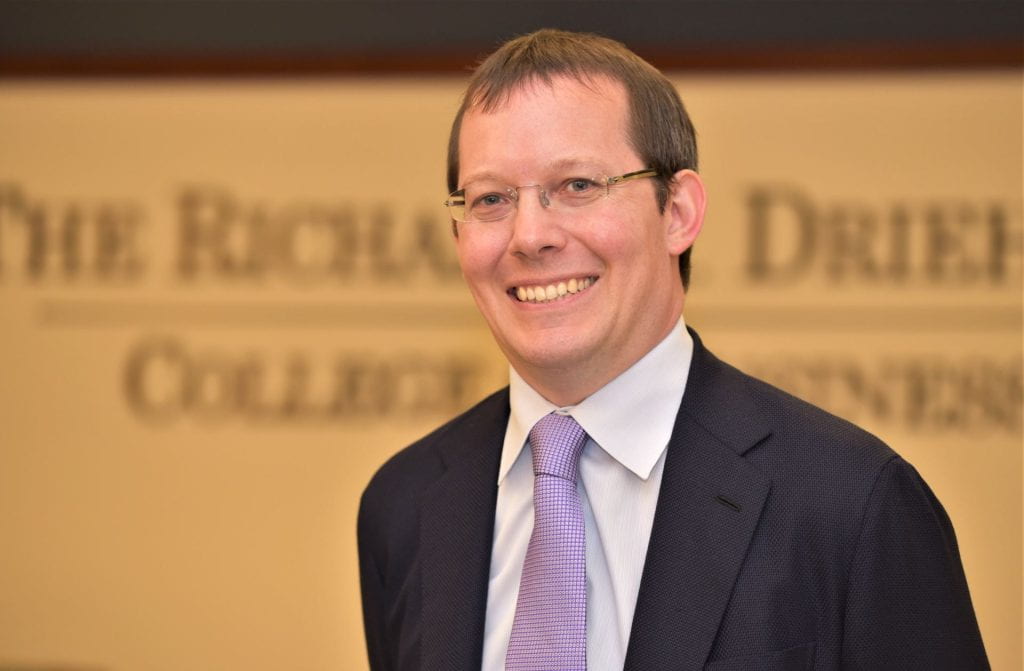
In 2008, Countrywide Financial, once the largest mortgage lender in the United States, was embroiled in a scandal that caused banks to rethink how they pursue political influence. For several years, Countrywide Financial offered loans with low interest rates and other benefits to members of Congress, congressional officials and directors at the U.S. government-sponsored mortgage financer Fannie Mae. After the Countrywide affair was revealed, banks implemented stricter rules around their dealings with politicians, but a recent study co-authored by a DePaul business professor has found that some banks potentially use alternative ways to pursue influence.
The study examined whether banks offered better loan terms to firms that are connected to members of Congress, focusing on close elections, which the authors defined as those in which the victory margin was less than 5%. Their results showed that political connections ultimately led to lower interest rates on new loans to affected firms.

“We were surprised that these banks, at least in our interpretation of the results, tried to ingratiate themselves with politicians by actually giving better loan terms to firms that appear to be supported by these politicians,” says co-author Pavel Savor, a professor of finance and the Christopher L. Keeley Chair in Investment Management at the Driehaus College of Business. “It’s not something I would have guessed when starting this project.”
Savor recently presented the study at several international conferences, where he says he heard from a number of former bank employees who mentioned their employers’ strict rules about dealing with politicians.
“It’s often said that one of the worst things that can happen to a bank is that one of their ex-executives becomes a regulator because that regulator now has to be especially worried about perceived possible conflicts of interest,” he says. “The other thing a bank can do is try to ingratiate itself with politicians by using some less observable means.”
In addition to being treated more favorably by politicians and regulators, firms’ business partners—lenders, customers or suppliers—may also treat banks more favorably as a result of those connections.
“In addition to having direct benefits, these connections may also have indirect benefits, which illustrates the potential importance of political connections and influence on businesses, especially large businesses,” Savor says.
Other findings from the study include:
- Loan terms depend on several factors. The authors found that the improvement in loan terms was much greater when politicians sit on important congressional committees (the effect becomes 244% stronger), when the firm is among the politician’s top campaign contributors (652% stronger impact), and when the firm and politician come from the same state (250% stronger impact).
- Interest rate savings add up. The cost of offering discounts in the form of lower interest rates to connected firms is more than the maximum direct contribution firms can make to a political campaign. The amount of interest rate savings was found to be 10 times higher than what firms can contribute in any given year.
- The 2008 financial crisis may have affected banks’ loan activities. Banks were more likely to offer lower rates and lend more frequently to connected firms if they were facing regulatory issues and during the period surrounding the passage of the Troubled Asset Relief Program (TARP), a program enacted by the U.S. government to help stabilize the economy in the wake of the 2008 recession. The study showed that the impact of political connections was much stronger (625%) during this period, as it also was for banks that received government bailouts.
By Jaclyn Lansbery
